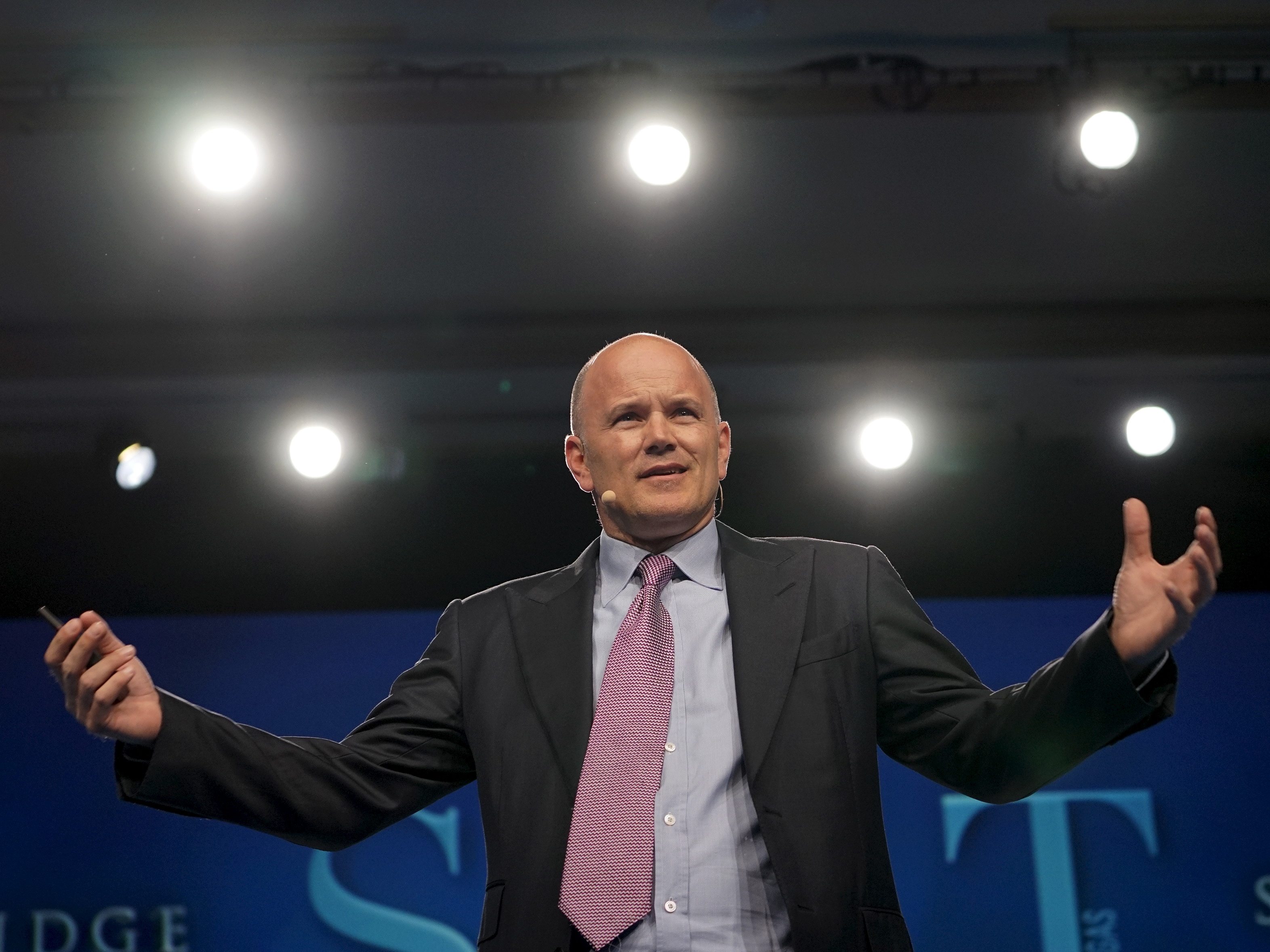- Billionaires are “really, really fearful” of Sen. Elizabeth Warren, the former Goldman Sachs partner and hedge fund manager Michael Novogratz told Bloomberg’s Amanda L. Gordon in an interview published Monday.
- Novogratz, a hedge fund manager turned cryptocurrency investor, lost his billionaire status during the financial crisis, according to Forbes.
- Warren, a leading 2020 Democratic presidential candidate, has proposed a wealth tax designed to reduce economic inequality by taxing ultra-wealthy Americans. A wealth tax proposed by another candidate, Sen. Bernie Sanders, is even more aggressive.
- Visit Business Insider’s homepage for more stories.
Billionaires are “really, really fearful” of Sen. Elizabeth Warren, the former Goldman Sachs partner and hedge fund manager Michael Novogratz told Bloomberg’s Amanda L. Gordon in an interview published Monday.
“Ninety-seven percent of the people I know in my world are really, really fearful of her,” Novogratz told Bloomberg. “They don’t like her, they’re worried about her, they think she’s anti-rich … It’s a little carried away.”
“You’re not victims, you’re the richest people in the world,” Novogratz continued in the Bloomberg interview. “How in God’s name do you feel like a victim?”
Any hard feelings toward Warren aren't mutual, the senator who is a leading contender for the 2020 Democratic presidential nomination said at the October 15 presidential debate. "Look, I don't have a beef with billionaires," Warren said, according to Bloomberg. "All I'm saying is, you make it to the top, the top 0.1%, then pitch in 2 cents so every other kid in America has a chance to make it.'"
How Warren's wealth tax would affect the 1%
Warren's "Ultra-Millionaire Tax" calls for households' net worth between $50 million and $1 billion to be taxed at a 2% annual rate (the "2 cents" on every dollar she mentioned at the debate) and their net worth exceeding $1 billion to be taxed at a 3% annual rate.
The idea of a wealth tax has support from ultra-wealthy and ordinary Americans alike: An Insider poll of Americans found that more than half of respondents supported Warren's wealth-tax proposal. In June, a group of 18 ultra-wealthy Americans signed an open letter, published in The New York Times, asking presidential candidates to support a moderate wealth tax. And in October, the billionaire Marc Benioff too published a letter in The Times asking for a higher tax on America's ultra-wealthy.
A wealth tax would dramatically change the look of money in America. If the US had implemented a moderate wealth tax in 1982, Jeff Bezos' fortune would be half what it was in 2018, and Bill Gates would be $61 billion less rich, Business Insider previously reported.
While Warren's wealth tax his stirred up a mix of reactions, the wealth tax proposed by her 2020 challenger Sen. Bernie Sanders is even more aggressive. Both proposals have been hampered by questions over the effectiveness and the constitutionality of such a tax.
Novogratz, 54, built his fortune as a partner at Goldman Sachs and the cochief investment officer of Fortress Investment Group, but he turned to full-time cryptocurrency investing in 2015, according to Forbes. The magazine estimated in 2018 that his cryptocurrency investments alone were worth $700 million to $1 billion. Forbes listed Novogratz as a billionaire in 2007 and 2008, but he dropped out of the three-comma club after the value of Fortress shares fell 89% in 2008, at the start of the financial crisis.

